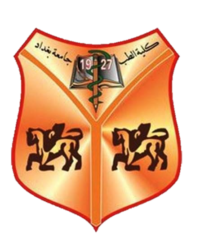Clinical Infectious Diseases Research Unit
Overview
The Clinical Infectious Diseases Research Unit was founded on the initiative and scientific proposal of Professor Dr. Abdul Redha Al-Abbasi, Assistant Dean of the College of Medicine, University of Baghdad. Due to terrorist threats, Dr. Al-Abbasi left the country in 2006. Leadership of the unit was later assigned to Assistant Professor Dr. Saad Hassan Mohammed Ali, who, as the Head of the Microbiology Branch, assumed the role of Director on September 15, 2011.
Challenges and Progress
Initial efforts to reconstruct and equip the unit were hindered by delays in the Baghdad Governorate's donation for building rehabilitation, along with a lack of essential devices and supplies. Despite these obstacles, the team began civil renovations in June 2011, utilizing an abandoned laboratory within the Microbiology Branch. Key achievements during this phase included:
- Equipping the unit with some essential devices in 2011 as part of the first batch.
- Preparing for further equipment acquisitions in subsequent phases through programmed funding by the Research and Development Department.
The unit is dedicated to advanced clinical research on communicable diseases, focusing on endemic diseases, zoonotic diseases, and a wide range of pathogens, including viruses, bacteria, parasites, fungi, and more. It also provides scientific advice, research services, and training to beneficiaries across academic and governmental institutions, fostering collaboration with ministries such as Health, Agriculture, and Environment.
Current Limitations
Despite its scientific significance, the unit's activation has been delayed due to:
- Inadequate financial allocations for facilities and advanced laboratory equipment.
- Security and financial constraints faced by the state.
However, with the support of Professor Dr. Mohi Kazem Wanas, Dean of the College of Medicine, a 200-square-meter space on the first floor of the Basic Sciences Building has been allocated for the unit, including scientific laboratories and administrative facilities. This initiative aligns with recommendations from the Research and Development Department and guidance from the Minister of Higher Education and Scientific Research.
Accomplishments
- Procurement of advanced laboratory equipment for microbiology subfields such as bacteriology, parasitology, protozoology, immunology, and molecular biology.
- Completion of original research on avian influenza in the Kurdistan region in collaboration with the World Health Organization (WHO) and NAMRU-3 in Cairo. The research was submitted to the Research and Development Department and approved on April 18, 2011.
Short-Term Plans
- Leadership: Assistant Professor Dr. Saad Hassan Mohammed Ali continues as acting director, with work commencing on September 15, 2011.
- Laboratory Development: Rehabilitation and opening of additional laboratories, with two faculty members—Assistant Professors Dr. Mohammed Abdul Ikhwa Al-Fahham and Dr. Ghanem Ibrahim Ahmed Al-Wadi—and researcher Janan Mahdi contributing their expertise.
- Equipment Provision: Completing the acquisition of scientific research equipment for operational efficiency.
- Training: Enhancing the research and administrative capabilities of staff through national and international training programs.
Long-Term Plans
- Conduct studies on endemic communicable diseases, starting in Baghdad and extending to other regions as funding and logistics allow.
- Focus on imported communicable diseases posing threats to public health, including diagnostics, treatment, and transmission.
- Elevate Iraq’s scientific profile through advanced research publications and participation in scientific seminars and conferences.
Vision for the Unit
The College of Medicine, University of Baghdad, as Iraq’s premier medical institution, aspires to establish a prominent research center akin to those in other institutions like the College of Medicine at Nahrain University. The unit aims to:
- Serve as a hub for research on communicable diseases, endemic and imported.
- Support postgraduate and board-certified medical research in microbiology and other clinical specialties.
- Collaborate with national and international institutions to advance scientific discovery and medical education.

